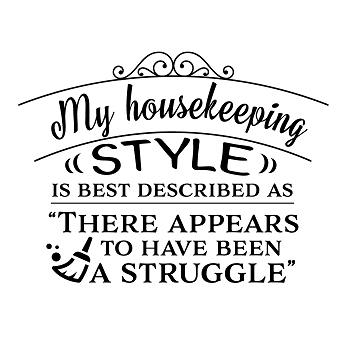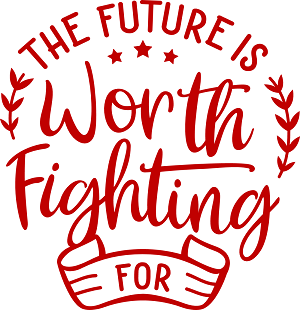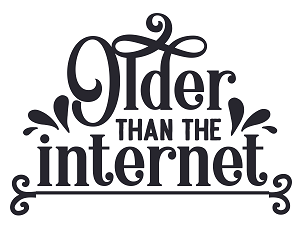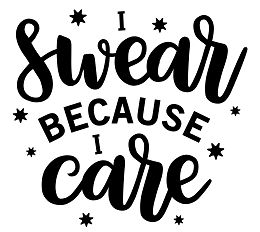 Let’s talk about clutter. More specifically let’s talk about the psychology of clutter, what causes it, what makes it so hard to declutter, and what all that extra “stuff” in our lives does to our brains and our wellbeing.
Let’s talk about clutter. More specifically let’s talk about the psychology of clutter, what causes it, what makes it so hard to declutter, and what all that extra “stuff” in our lives does to our brains and our wellbeing.
It’s a hot topic and for good reason. As a society in the western world, and the US in particular we have more stuff than ever before. Our houses are bigger, our closets are bigger, yet every closet, the spare bedroom and the garage is full of stuff.
There is an entire industry that’s grown up around helping us deal with our clutter from store that sell organizing solutions, to organizing and decluttering consultants, and even storage units that allow us to keep even more stuff we don’t have room for.
Clutter is Distracting and It Can Hurt You
If nothing else, all this clutter and all this extra stuff can be very distracting. When was the last time you spent more than a couple of minutes trying to find something among all the extra things you’re keeping around “just in case”?
Think about the time you’re wasting each and every day searching for stuff, or shifting things around to get to the item you need. That’s time you’re not getting back.
Even when you’re not actively looking for something, the clutter can be very distracting. You may not think that you’re noticing it, but you are. You’re keeping mental tabs on everything around you and that can be quite distracting. It’s much more relaxing and a lot easier to focus in a relatively clean and clutter-free environment.
Clutter can also keep us from moving on. It’s a coping mechanism that keeps us stuck in the past and it all has to do with why we hang on to so much stuff in the first place. Some things we keep because of the memories attached to them.
Others we hold on to because it causes us too much pain to let them go. Most of us have an old t-shit or stuffed animal hidden in the back of the closet that we’ll never wear again, or snuggle with. We hold on to it because it reminds us of our childhood or youth.
You may hold on to other things that either remind you of your own past, or that belonged to a loved one that you can’t make yourself part with. Letting go of things and getting rid of physical items that we’ve grown attached to can hurt us.
But, sometimes facing that pain is part of the overall healing process. We hold on to notebooks and paperwork from that failed business opportunity, or the treadmill we bought to get into shape. Letting go and getting rid of either feels like we’ve truly given up on the idea.
Clutter can even hurt your brain. It’s much harder to focus on anything from simple household chores to doing your taxes, finishing up an important report for your boss, or writing a paper.
It makes it harder to process information so everything that’s going on around you in a cluttered environment takes a lot more brain power. That in turn leaves you with less energy for the fun stuff.
Last but not least, clutter stresses us out. I’m sure you’ve noticed this yourself and it’s the reason most mediation or yoga spaces are sparely furnished and never cluttered. We’re a lot more stressed when we’re living in a cluttered space.
I’m sure part of it has to do with the fact that we have to keep mental tabs on all the extra things surrounding us. Add to that the mental and digital clutter we’re dealing with on a regular basis and it’s no wonder we’re so stressed out in the western world.
With that come all sorts of stress related illnesses including an increased risk of stroke and heart disease. Who knew that part of the solution could be something as simple as decluttering?
Physical Clutter vs. Digital Clutter
The clutter we have to deal with and that can often do us more harm than good, isn’t limited to just physical clutter. With the advent of computers and mobile devices, we’ve gotten very good at holding on to digital clutter as well. Since it doesn’t take up a lot of physical space, it’s even easier to accumulate this digital clutter.
Take a few minutes and figure out where exactly you’re keeping your digital clutter. Places to start looking are your computer, external hard drives, laptops and tablets, your phone, but also memory cards that hold digital photos.
Then there are digital storage solutions that don’t take up any physical space at your home like your cloud backups and email accounts, for example. You may not think much about the 587,097 emails sitting in your Gmail inbox, but it’s all digital clutter that adds up.
You don’t even realize how much that full email inbox is weighing on your mind until you make the effort to clear it out. It is incredible how freeing that feeling is. Give it a try and you’ll realize first-hand that digital clutter impacts you just as much as physical clutter does.
Clutter, be it physical, digital, or even the clutter of ideas and dreams in our head, takes up room. It takes up physical space, digital space, and most importantly it takes up room in our brain to keep track of it all.
Start thinking about how you can reduce that clutter to leave more “headspace” for the important stuff. Something as simple as a brain dump exercise can be a great place to start.
Not only will it help you declutter and organize your thoughts, a lot of thoughts about all your physical and digital clutter will come up as well and help you come up with a plan to tackle them one at a time.
Doing a “brain dump” is very easy to do. It can be a bit exhausting while you do it, but the end result and the peace of mind you get from it are well worth the effort.
Grab a notebook or a few pages of scrap paper and a pen. Then start writing down everything you need to or want to get done. Write down your dreams, aspirations, and goals. Write down appointments you need to remember and chores that need taken care of.
Don’t edit, don’t second guess yourself. Simply focus on getting it all out of your head and onto the paper. When you’re all done, take a deep breath and notice the freeing and calming feeling.
Later on, you can go through the list, organize it, cross out items you don’t really need, and use the rest as a starting point to organize and declutter your live from physical, digital, and mental “stuff”.
From Minimalist to Organized Chaos – Finding Your Clutter “Sweet Spot”
There is one more psychological aspect of clutter that we need to talk about before we wrap up this short report, and that’s finding your own clutter “sweet spot”. Here’s what I’m talking about…
Some people thrive in a very sparse and clean environment with no unneeded item in sight and everything in its place. Others need a quite a bit of organized clutter around them to feel calm and comfortable. Most of us fall somewhere in the middle.
It’s important to realize that your house doesn’t have to be Architectural Digest perfect at the end of the day. It simply has to work well for you and your family. This means you don’t have to work from a blank desk or that the books on your shelves have to be perfectly organized by topic, author, or size.
If you work better at a desk that includes a couple of family pictures, a notepad and assortment of pens, and a stress ball, then go for it. Just be careful that you don’t let the clutter take over. It has a tendency to multiply.
The key is to find your very own sweet spot when it comes to clutter and how much stuff you have laying around. Finding the spot can be a little tricky. To find it, start with a completely clutter-free environment. Spend the time and effort to declutter, clean, and organize until you’re left with a space that’s as sparse as you can make it.
Don’t strive for perfection, but do the very best you can for your personal situation. For example, if you’re living with young children, your house will never look like a model home and there will always be toys around. That’s OK. Give it your best and use that as your starting point.
If you’re comfortable there, great. If it feels a little cold and uncomfortable, start adding a few more personal items here and there. Add a comfy blanket to the couch or put a scented candle on your desk. Put a few personal items here and there and see how you feel about your space now.
Rinse and repeat until you find your very own sweet spot when it comes to “stuff” and “clutter”. Then do your best to keep it there.
There are two important things you need to keep in mind with this idea of finding your own personal level of clutter. Chances are that what works well for you changes over time.
We all go through periods in life where we need more stuff around us to feel comfortable and times when we want things more clean and orderly. It is part of life and the seasons we go through. Keep this in mind as time goes by and adjust as needed.
More importantly, clutter will sneak up on you. I’m sure you’ve experienced this first hand. You start out with a clean dining room table, put one item on it and before long the table is so covered that you can no longer see the surface.
Clutter attracts more clutter and you have to stay on top of it or it will start to take over. One of the big appeals of minimalism for many of us is that we no longer have to worry about clutter taking over.
You don’t have to go that far, of course. You simply need to be aware of the phenomenon and deal with it as time goes by. Give your home or office a quick scan once a week and see if there’s an area where clutter is accumulating.
Take care of it by returning items to the place they belong or getting rid of them. If you find the same spot attracting clutter week after week, see if you can come up with a solution.
Maybe there needs to be a new house rule that nothing can be left on the dining room table, or maybe you can put a pretty table cloth and some candles on it in an effort to avoid the clutter attraction.
Final Thoughts
I hope you’ve found this short exploration on the psychology of clutter helpful. If nothing else, it should inspire you to examine the spaces you live and work in and make you think about how comfortable you are in those spaces.
Decluttering can be hard. It’s physically and mentally taxing, but it is well worth it when you get done and find yourself taking control of the spaces you occupy. It’s well worth it for the peace of mind and time savings you’ll find in a cleaner, more organized place.
Don’t let clutter rule you. Instead, make smart choices and surround yourself with items that you love and that make your life easier, or more pleasant. Find that sweet spot between minimalism and clutter.
Not only will you create a more comfortable home for yourself and your loved ones, it will also greatly reduce the level of stress you’re under.
Remember, less is more, but how little you want to surround yourself with is entirely up to you.


